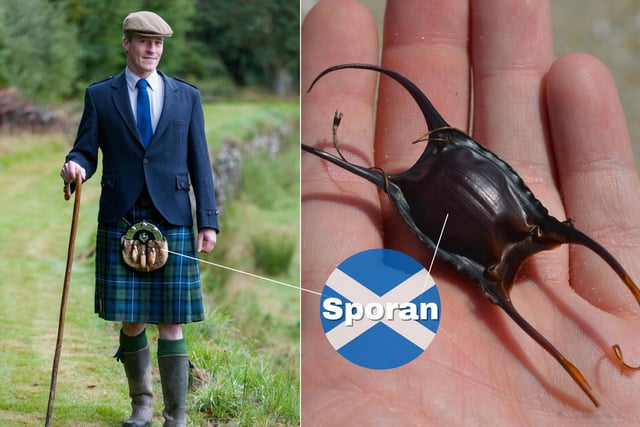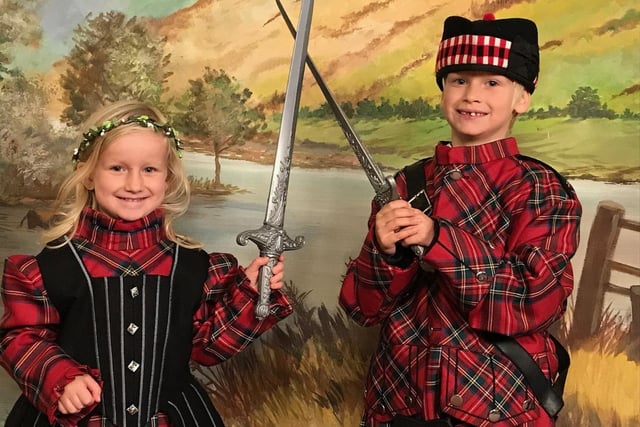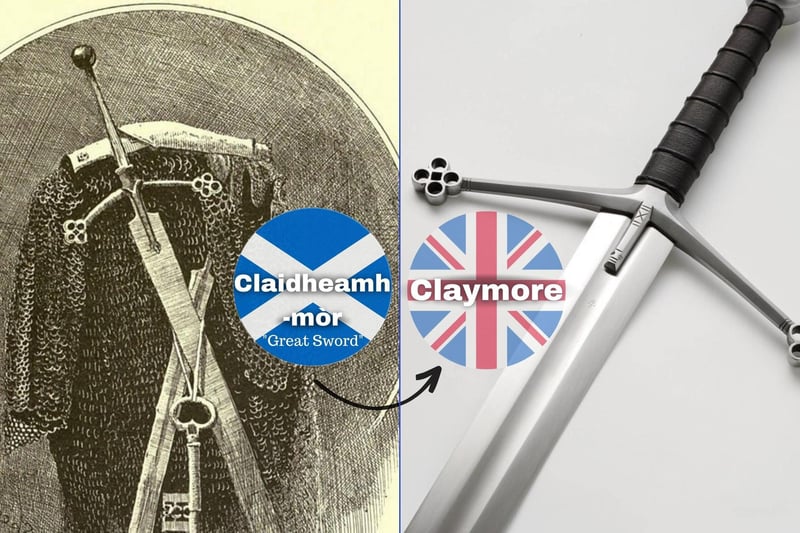Certain words that Scotland and the English-speaking world use today, while pronounced differently, have emerged from Scottish Gaelic (or via Irish Gaelic which is very closely related.)
It can be easy to think that Gaelic borrows from English, which in some cases is true as many modern European languages have adapted English words, but this overlooks how English takes from others.
Many languages Germanic, Latin, Greek, Norman French and Celtic in origin make appearances in what we know as English today. By way of Ireland, Gaelic was brought to Scotland around AD 500 meaning these words have Irish roots in common but certainly pass through Scottish Gaelic.
Learn about these words with Carl’s Lingo Kingdom (see attached video), or continue reading now for 13 English words that are connected to Scottish Gaelic.

1. Sporran
The Sporran is a traditional part of Scottish Highland dress that essentially acts as a pocket when wearing a kilt. The word is rooted in the Gaelic “sporan” which means purse. Marine creatures like sharks and rays produce eggs which have a tough protective casing known as a mermaid’s purse as it can be written in Gaelic; sporan-bìgis. Photo: kylehartshorn on Flickr / pidjoe on Canva Pro

2. Clan
In ancient times, Scottish clans were composed of extended networks of families who were loyal to a shared chief. Therefore, the group is called a “clan” as it comes from the Scottish Gaelic word “clann” which literally means children. As could be said in the Scots language “we’re aw Jock Tamson’s bairns” (we’re all the same/of a shared family.) Photo: calard via Pixabay

3. Whisky
Scotland is often credited as the country that invented this beverage, and the English word "whisky" has roots in Scottish Gaelic from its name "uisge beatha" which means "water of life". Photo: Nishihama via Getty Images

4. Claymore
The Claymore, an iconic two-edged heavy broadsword wielded by Scottish Highlanders, is an iconic weapon famous worldwide. Many don’t know, however, that the word “Claymore” comes from the Scottish Gaelic “claidheamh-mòr” which means “great/big sword”. The name may lack the finesse of other regional swords like Japan’s Mikazuki Munechika or ‘Crescent Moon Blade’ but does Big Sword get the job done? Absolutely. Photo: Lancelot Speed (1860 – 1931) via WikiCommons and albioneurope on Flickr
